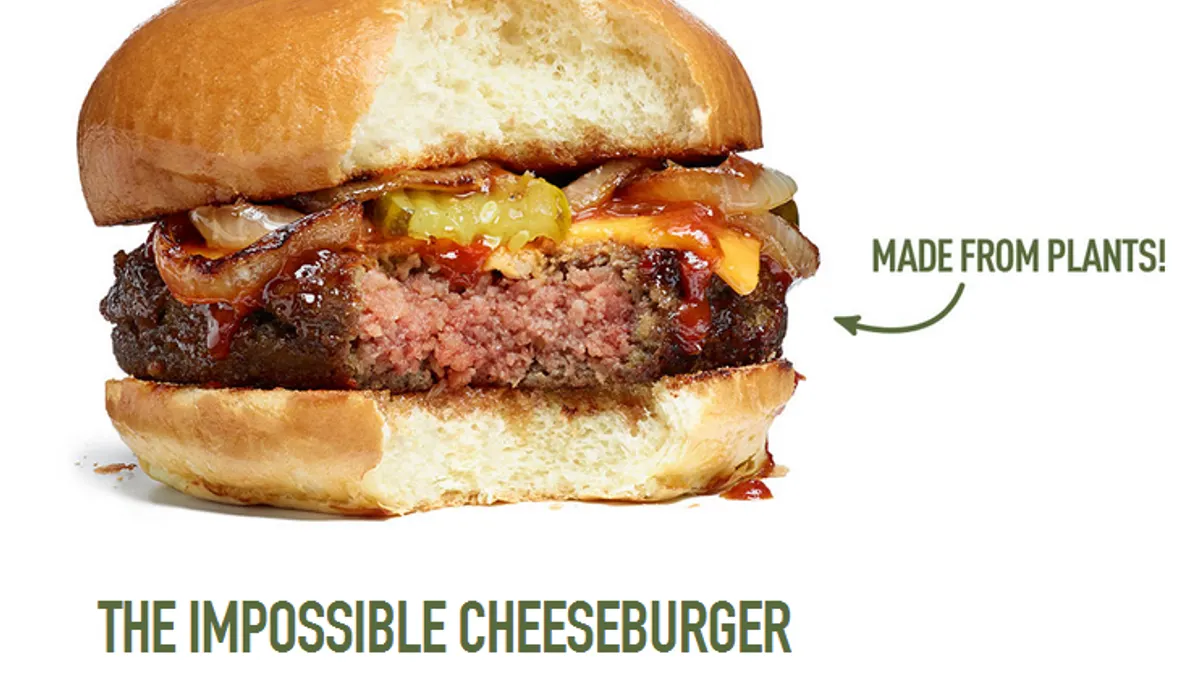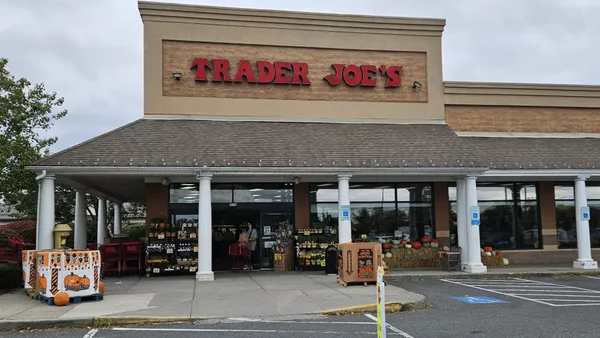Dive Brief:
- Plant-based food sales jumped 11% in the past year, reaching a total market value of $4.5 billion, according to figures released by The Good Food Institute and the Plant Based Foods Association (PBFA).
- Sales of plant-based yogurt saw the highest growth at 39%, while conventional yogurt sales fell 3%, the groups reported. Refrigerated plant-based meat alternative sales grew at a similar clip, increasing 37%.
- The data represent retail sales of plant-based foods that directly replace animal products, including meat, seafood, eggs and dairy, plus meals containing plant-based alternatives. The figures cover the 52-week period ending April 21.
Dive Insight:
Recent plant-based product launches are playing into this growth, and are likely to stretch it even more. Should these trends continue at the current pace, it's probable more manufacturers will add plant-based products to appeal to consumers and bolster their balance sheets.
In the press release about the findings, Julie Emmett, PBFA's senior director of retail partnerships, called plant-based foods a "growth engine" outperforming overall grocery sales. She said the expansion shows that the industry is at a tipping point, emphasizing the need for retailers to offer variety and maximize shelf space.
Plant-based options expanded across product categories, growing much faster than conventional items. Sales of plant-based ice cream and frozen novelty items were up more than a quarter. Plant-based cheese sales increased by almost a fifth, while the dairy-based variety remained flat.
Sales of all plant-based meat — refrigerated and frozen —were up 10% last year, bringing the category's worth to more than $800 million — and now comprising 2% of all retail packaged meat sales.
Similarly, sales of plant-based milk products expanded 6% in the past year, while sales of cow's milk dropped 3%. The plant-based segment now makes up 13% of the entire milk category, according to the report.
Several manufacturers are jumping on board with plant-based products. Tyson Foods will debut meatless protein products later this year. Nestlé will roll out a cook-from-raw plant-based burger this fall in the U.S. Impossible Foods, which has predominantly focused on restaurants, plans to launch its burger in retail outlets later this year. Perdue is taking the hybrid route by offering chicken products mixed with vegetables.
As long as the growth continues, more food manufacturers will likely invest in plant-based foods and beverages and bring additional products to the market. For producers of conventional animal-based dairy and meat products, these latest sales figures could be a cause for concern about staying relevant in the face of such a shift.













